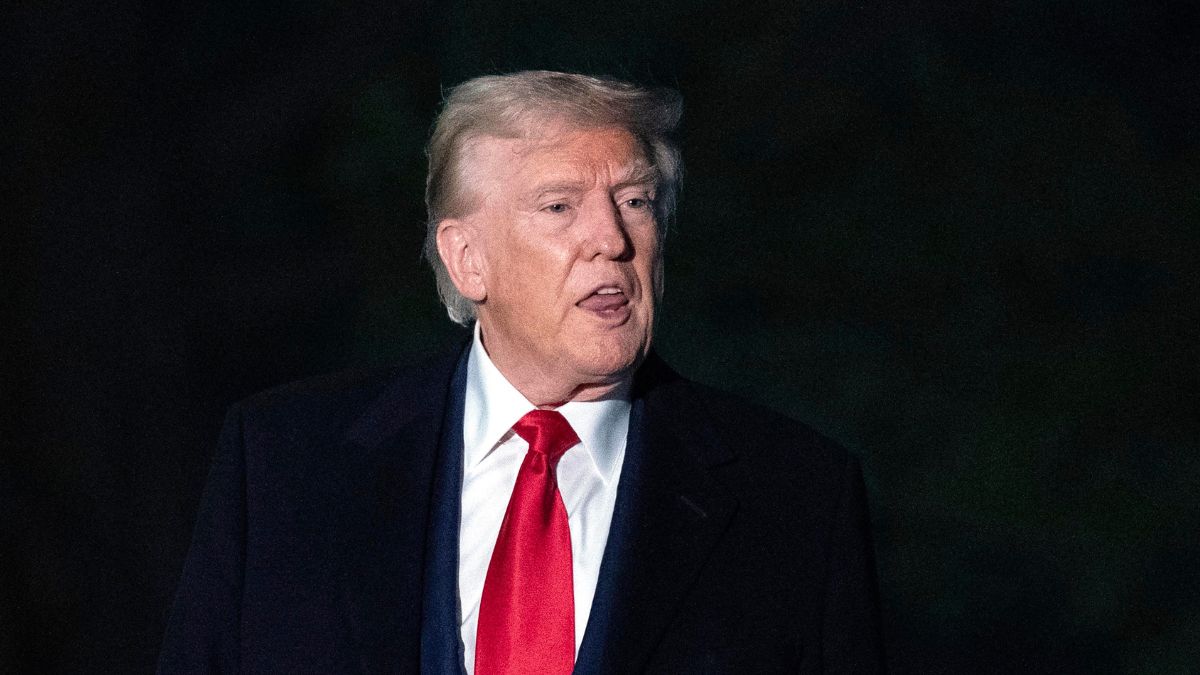Trump’s Houthi truce leaves Israel isolated amid ongoing attacks
 US President Donald Trump on the South Lawn of the White House in Washington, Sunday on April 13, 2025 | AP
US President Donald Trump on the South Lawn of the White House in Washington, Sunday on April 13, 2025 | AP
The United States has reached a truce with Yemen’s Houthi rebels, agreeing to suspend airstrikes in exchange for a halt to attacks on American vessels in the Red Sea. President Donald Trump revealed the deal unexpectedly during an Oval Office meeting with the Canadian prime minister on May 13, catching even senior Pentagon officials off guard.
The announcement came after a costly seven-week American bombing campaign aimed at deterring Houthi attacks on international shipping. However, it remains unclear whether Washington has achieved that goal. Although Trump declared the arrangement a success, critics note that Houthi activity in shipping lanes had already declined prior to the deal.
Israel, meanwhile, has been left sidelined and blindsided. Prime Minister Benjamin Netanyahu expressed frustration, declaring that Israel would "defend ourselves alone" against the Iran-backed group. Just hours before the deal was made public, Israeli forces launched a major aerial assault on Yemen’s international airport and other Houthi-linked infrastructure in retaliation for a ballistic missile strike on Israel’s Ben Gurion Airport.
An Israeli official told CNN that Jerusalem had not been informed in advance of the US-Houthi truce. “If others join us—our American friends—all the better. If they don’t, we will still defend ourselves on our own,” Netanyahu said in a video posted on social media.
Trump said the US would suspend its operations against the Houthis in exchange for a guarantee from the group not to target American military or commercial vessels. The agreement, however, does not extend to Israel. In fact, a drone from Yemen was intercepted by the Israeli air defence within a couple of hours after the agreement with the US.
While Trump hailed the Houthis’ willingness to negotiate, he made no mention of their attacks on Israel, despite a recent missile strike that caused serious damage and prompted airlines to suspend flights to and from the country. The omission has fuelled concerns in Israel that its security interests are being overlooked by Washington.
The US campaign against the Houthis has cost over $1 billion till now. It saw the Americans losing seven MQ-9 Reaper drones and two F/A-18 Super Hornet jets. Meanwhile, critics say the American strikes in Yemen have not achieved much in changing Houthi behaviour. Interestingly, the last verified Houthi attack on a commercial ship took place last November, casting doubt on the effectiveness and the timing of the latest American move.
Analysts suggest the truce may have been brokered by Tehran. Two Iranian officials told The New York Times that Iran had persuaded the Houthis to cease attacks on US interests as a gesture of goodwill amid ongoing nuclear negotiations with Washington. Publicly, Iranian leaders continue to deny direct control over the group, insisting the Houthis operate independently.
The Houthis have indicated they will continue to target Israel. Senior Houthi figure Mohammed Ali al-Houthi hailed the US deal as a “victory” that separates American interests from those of Israel. He described it as a blow to Netanyahu and a sign of growing regional isolation for the Israeli government.
Israel’s Defence Minister, Israel Katz, reaffirmed the country’s resolve: “Israel must be able to defend itself by itself against any threat and any enemy.”
Though Israel has proven its capacity for precision strikes deep into Yemen, analysts warn the Houthis are well-versed in guerrilla warfare, having adapted to years of aerial bombardment. Yemen’s rugged terrain, coupled with widespread support for Houthi attacks on foreign powers, will complicate Israel’s ability to neutralise the threat.
While Trump declared the deal a sign of Houthi capitulation, he struck a different tone on May 14, describing the rebels as “brave” for withstanding intense bombardment. “It was amazing what they took,” he said.
Whether the ceasefire holds—and whether Israel remains a target—remains to be seen.
Middle East